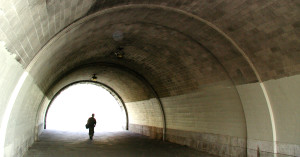 Try this thought experiment:
Try this thought experiment:
Suppose you knew that, although you yourself would live a normal life span, the earth would be completely destroyed thirty days after your death in a collision with a giant asteroid. How would this knowledge affect your attitudes during the remainder of your life?
That’s what the author of a new book suggests we do. Death and the Afterlife (Oxford) by Samuel Scheffler is based on the Berkeley Tanner Lectures and includes commentaries by four additional thinkers. Scheffler uses a variety of philosophical arguments to make his main point, which is that it’s not only our own lives and experiences that make life meaningful to us.
“Few of us,” writes Scheffler about the thought experiment quoted above, “would be likely to say: ‘So what? Since it won’t happen until thirty days after my death, and since it won’t hasten my death, it isn’t of any importance to me. I won’t be around to experience it, and so it doesn’t matter to me in the slightest.’”
In fact, he suggests, a lot of what keeps us busy now, activities that mean something to us, would become less important to us in such a situation, in a way that confronting our own deaths wouldn’t cause. He also discusses how other scenarios would affect us, such as if infertility because universal, so no more generations would be born.
NOVELISTS’ VERSIONS
Another way to conceptualize such profound questions is to read T.C. Boyle’s short story entitled “Chicxulub” (now collected in his new book, Stories II). As the protagonist and his wife anxiously await word about their missing daughter, he muses (brilliantly) about Chicxulub, the huge asteroid or comet that probably knocked out the dinosaurs.
The thing that disturbs me about Chicxulub . . . is the deeper implication that we, and all our works and worries and attachments, are so utterly inconsequential. Death cancels our individuality, we know that, yes, but ontogeny recapitulates phylogeny, and the kind goes on, human life and culture succeed us. That, in the absence of God, is what allows us to accept the death of the individual. But when you throw Chicxulub into the mix—or the next Chicxulub, the Chicxulub that could come howling down to obliterate all and everything even as your eyes skim the lines of this page—where does that leave us?
What I find personally stunning is to compare how many words it takes to lay out a hard-to-refute philosophical argument (as in Scheffler’s book) versus how fast it is to slam readers in the gut with an experience they can relate to instantly: imagining the death of their child.
I tried to do this too, obviously in a much less gifted way than Boyle managed, in my novel Kylie’s Heel. Here’s what the protagonist thinks when something terrible seems to have happened to her only child:
At least now I no longer need to worry about my son or the fate of the world. When you have a child, you yearn for the world to thrive, but now all the looming catastrophes have lost their power to terrify. Fire, ice, fallout. The outcome of the game no longer matters to me.
Does that seem selfish to you? Other thoughts? From previous comments my posts here have gotten, I expect transhumanists and cryogenics fans may see this differently. Meanwhile, Death & the Afterlife would make a terrific book for reading groups (though maybe only in my dreams?).
- Death & the Afterlife is also available as an ebook.
Copyright (c) 2013 by Susan K. Perry. Follow me on Twitter @bunnyape

Thanks for this thought provoking write up and the relevant links. It is always interesting to think about the big questions.